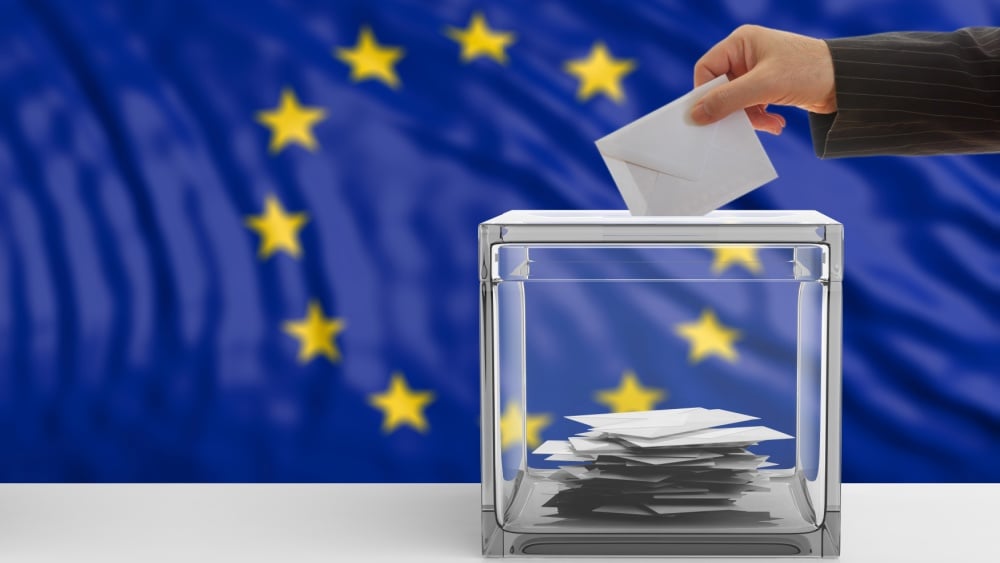Voting has concluded for the European Parliament (EP) elections and the first results are starting to come in. Some results released while the census continues in European Union (EU) member states suggest that the far-right is on the rise within the EU.
Voters across the 27 member states of the European Union (EU) will go to the polls from June 6th to 9th to elect their next members of the European Parliament (EP). Voting has now concluded in all countries and the results have started to be announced. While the vote counting is still ongoing, initial results suggest that the far right appears to be on the rise.
Here are our predictions for how seats in the next European Parliament will be allocated after the initial results.
Footage shared on social media showed protesters chanting “Ciao Bella” outside the European Parliament.
Demonstrators outside the European Parliament sing “Bella Ciao” and call for European unity against the far-right. pic.twitter.com/qy2Bbj5TJf
— Alexandra Brzozowski (@alex_owski) June 9, 2024
What is the situation in each country?
The AfD is on the rise in Germany
In Germany, the Christian Democrats’ CDU/CSU coalition came in first in the elections, winning 30 seats in parliament. The far-right Alternative for Germany (AfD) came in second with 16 seats. The Social Democrats (SPD), the largest party in Germany’s coalition government, came in third with 14 seats.


Among the other coalition partners, the Greens won 12 seats and the Free Democrats (FDP) won five.
According to these results, Germany’s European People’s Party (EPP) won 30 MEPs, the Greens/European Liberal Alliance 16, the Socialists and Democrats (S&D) 14, Renew Europe (RE) 8, the Left 4 and parties within the EP not yet grouped together 19.
Far-right extremism takes first place in Austria
In Austria, the far-right Freedom Party of Austria (FPÖ) came in first with six seats. The FPÖ was followed closely by the EPP and S&D, with five seats each. The Greens and Renew Europe (RE) won two seats each.
Meloni’s party takes the lead in Italy
In Italy, Prime Minister Giorgia Meloni’s Brotherhood of Italy party won between 27 and 31 percent of the vote. The center-left opposition Democratic Party (PD) won between 21.5 and 25.5 percent. The Five Star Movement (M5S) got between 10 and 14 percent, while Forza Italia, founded by Silvio Berlusconi, only got between 8.5 and 10.5 percent.


Matteo Salvini’s populist League party has suffered a significant decline since 2019, winning just 8% of the vote.
Mr. Meloni’s grip on Italian politics is expected to tighten further following the Italian election results. Mr. Meloni took his party’s campaign at the Associated Press election very personally and focused on himself. He encouraged voters to write “Only Giorgia” on their ballots.
What is the situation in other countries?
Polish Prime Minister Donald Tusk’s National Coalition (KO) party is the sure winner of the EP elections. The pro-EU KO party won 38.2% of the vote, compared with 33.9% for the main opposition, the far-right conservative Law and Justice party (PiS).
In Spain, Prime Minister Pedro Sánchez’s Socialist Workers’ Party (PSOE) competed against the conservative People’s Party (PP), with the PP winning the election. The PP increased its number of MPs from 13 to 22. Sánchez’s party won 20 seats. The far-right Vox party doubled its number of MPs in parliament and now holds six seats.
In Greece, the EPP received eight votes, the Left received four, S&D received three, and the European Conservatives and Reformists (ECR) and independents each received two votes.
The Greek Cypriot administration in Southern Cyprus sent six members to parliament. The results showed that out of the six seats, the EPP won two, the Left won one, the S&D won one and two independents won two.
Exit polls suggest that Denmark will see big changes: in contrast to the rise of far-right tendencies seen in other parts of Europe, the biggest winners of the night there are left-wing parties.
The official results will be announced on June 10th.
Official election results will be published by the Associated Press on June 10. National parties eligible to join the EP will begin the process of forming political groups.
The first General Assembly will convene on July 16th, starting the new legislative period.
Source: Politico


